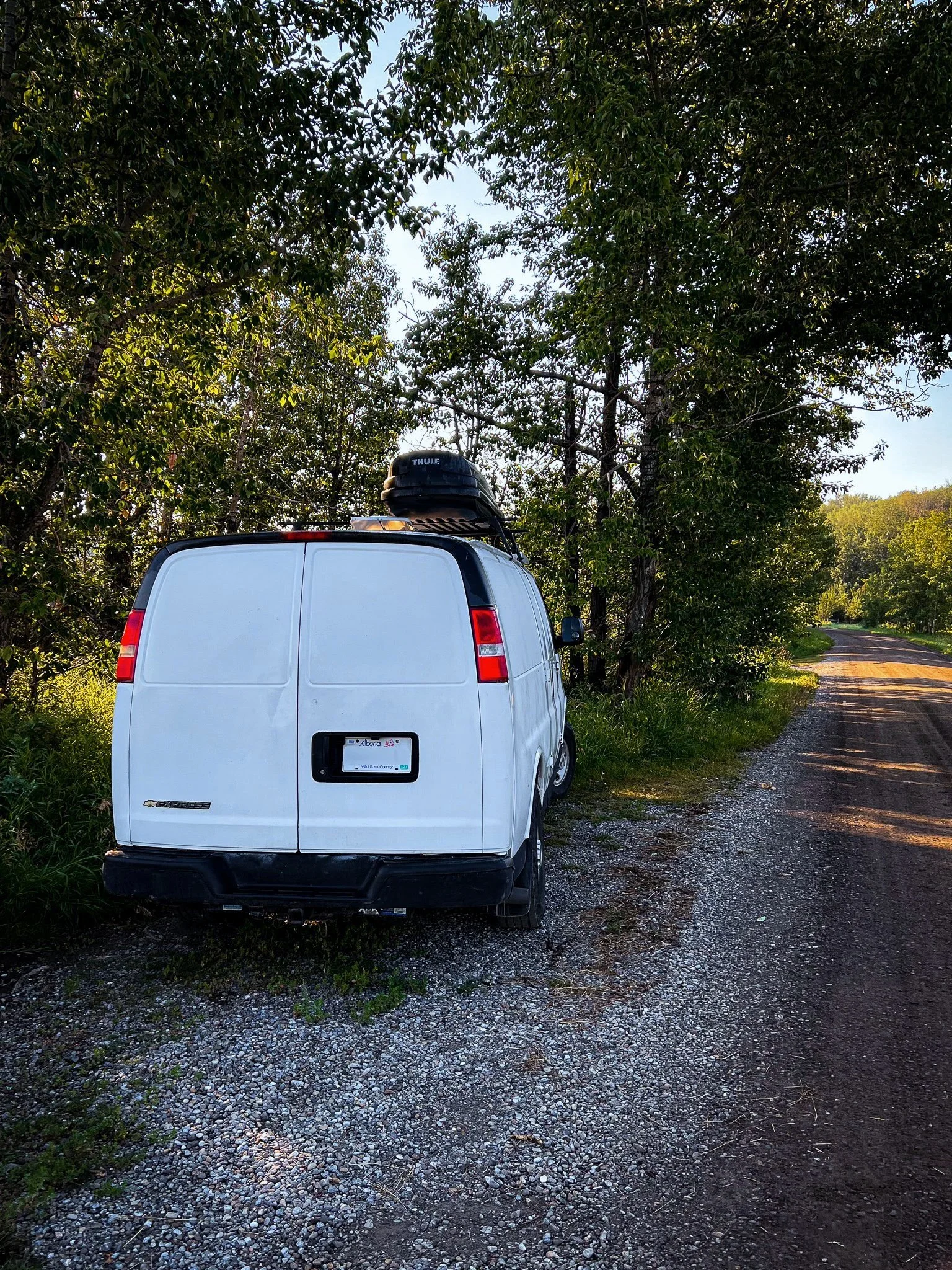Why NOT travel planning too much is a great plan
As someone who likes and needs a plan, knowing where I’m going to sleep is pretty important to me. I think it’s part of my travel planning DNA to know what’s next. My planning-self, however, got a shake up and a wake up this past week.
I read Wish You Were Here by Jodi Picoult on my recent adventure to Southern Alberta. I didn’t read the book description before I borrowed it from the online library as I’ve read many of Jodi Picoult books and find them an easy escape into well researched and often thought provoking stories. This one was written during the pandemic ABOUT the pandemic experience. Without giving the story away, the book begins with Diana, the relatable protagonist, travelling solo to the Galapagos Islands at the very onset of the pandemic. Through a number of twists and turns, with an emphasis on the global experience of COVID isolation and uncertainty, she experiences a number of personal transformations.
As we all know, the pandemic changed many things and brought us all into a period of uncertainty and heightened anxiety. Oddly, I chuckled at some of the pandemic references such as wiping down groceries, hoarding toilet paper, excessive baking, and banging pots and pans in salute to healthcare workers. In the same regard, I felt deeply shaken by the reminders of the pandemic horrors that still persist.
While I found the pandemic reflection interesting and fresh, my personal aha came from the message about how planning or the rigid commitment to a plan, might give us the illusion of control in our life, yet actually be the thing that prevents us from life’s most meaningful experiences. Besides, at the end of the day, life rarely follows the plans we create.
“Just because you make a good plan, doesn’t mean that’s what’s going to happen.”
~ Taylor Swift
Planning flexibility
I consider myself a great planner and love travel planning. Not the nitty gritty planning of an event but the big picture planning that joins research and experience to create learning and action. I quickly felt a connection with the main character. Diana has her life planned out meticulously. Her career and relationship goals are clear and on track. Her partner’s goals are perfectly aligned and the couple is both in love with each other and with the idea of their future together.
Me? I had a 1, 5, and 10 year plan at the age of 18, revised at 24, thrown out the window at 28.
My career as a facilitator honed my skills in the art of planning an experience for group participants which often included altering the plan in mid session. Now in mid-life, I think I’ve developed the ability to balance good planning with flexibility. But let’s be real… I can (and do) overplay my planning strengths, sometimes making them a potential liability! I work hard to avoid too much rigid planning but it happens, and in every case it is usually a tough process to reframe the resulting negative emotions - like disappointment, fear of uncertainty, regret, resentment, and guilt - to something positive.
Dublin 2019
My personal life is scarred with a few of these tales - like my over-preparedness for the birth of my first child and how nothing happened as I expected. But here is a recent travel example:
As a backstory to this example, earlier in a month-long trip to Scotland and Ireland my husband had a significant accident (a story for another time) that left him hurt and on pain killers and both of us exhausted from the traumatic experience. We carried on with our planned itinerary, though, arriving in Dublin for the final two days before flying home.
The days were planned, or should I say packed, as our time in Dublin was very brief. The “LIST” of things planned included a walking tour, visiting the grounds of Trinity College, exploring Temple Bar, EPIC, and, of course, the Guinness Storehouse. Of these, I had my heart set on visiting EPIC, the Irish Emigration Museum in Dublin. I am an occasional genealogy geek and with some family history linked to Ireland, I was particularly excited to visit. Needless to say, the two days unfolded quite differently.
My husband’s injury combined with some travel weariness meant that I had already begun to let some of my expectations go, but compounding matters was a mid-day Dublin rainstorm that had us sheltering inside for hours. Our short visit became even shorter, and in those last couple days my commitment to an ambitious, well-planned “LIST” got the better of me. We simply could not manage going to EPIC and my heart broke a little bit.
It took some time to process my disappointment and then guilt but I managed. Maybe my travel planning was too ambitious, maybe it needed prioritizing, maybe it demanded control over uncontrollable events (injury, weather), maybe I could have happily left my hubby at Guinness while I went to EPIC, but I let expectations get entangled in a plan causing it to become stiff and unforgiving.
I want a life, not just a plan
When I read this quote in the book, “You can’t plan your life, Finn,” I say quietly. “Because then you have a plan. Not a life.” it was as if Jodi Picoult reached out through the book, grabbed my shoulders and gave me a shake. I had to put the book down for a bit to think about this! As I Iook ahead at the next few years with my husband newly retired and myself unsure about work, we are planning adventures both big and small, far and near, together and solo.
But I want a life… not just a plan. I want to be informed of my options and have a plan that points me in a direction but also allows me to stay nimble and open to serendipity. Upon reflection, my 8 takeaways include:
Ensure the foundation of travel planning is knowing your travel WHY - and keeping it front and centre with intention.
Keep travel planning (and life plans) open and flexible erring on the side of gathering options rather than a list.
Be informed of options but don’t back yourself into a corner by committing to everything. Wait and see what happens. Allow the journey to emerge rather than looking ahead to what’s next on the list.
While I see the irony here, plan space in your itinerary. This allows the opportunity to linger, to move on, to add something different…or to simply recharge.
Know enough to ensure that if there is anything important to you that requires pre-booking you do so - eg. the Reichstag in Berlin, Anne Frank’s House in Amsterdam, or the Alhambra in Granada.
Be a curious, learning traveller instead of a consuming, bucket list traveller.
Allow things, people and places to surprise you!
Find healthy ways to manage your emotions and work through plans that don’t go as expected.
“Don’t let plans get in the way of your journey.” ~Uncle IrohReady to figure out your next adventure? Looking for more guidance?
Where to Next? is for people ready to travel but unsure about the where, what, why, and how. I can help transform your travel whims and wishes into extraordinary journey ideas tailored just for you.
Boondocking for the Win in Calgary.
My recent ten-day campervan trip offered an opportunity to shake off the travel planning and try an open approach. All of our camping sites had been reserved but on a whim, my husband and I cancelled the final days opting for a more flexible itinerary. When our Plan B didn’t turn out, we found ourselves in Calgary with a free evening and the looming question of where we were going to sleep that final night.
Like any responsible adult, we found some public showers, visited a pub, and then went to the movies!
Emerging from the air conditioned comfort of the cinema recliners, we looked at each other and burst out laughing. Here we were at 8pm with no plan. It felt simultaneously frightening and liberating. A comfort zone challenge that we didn’t “plan”! We jumped in the van, started her up and, still laughing, brainstormed possibilities…. Walmart or Costco parking lot? Drive to nearby campsites to see if there were spaces (on a long weekend, not likely)? A country road?
We headed to the outskirts of the city where residential neighbourhoods and big box stores abruptly become fields of hay and cattle. We checked out a boat launch by the river that we had visited while fishing but found a big sign that said no overnight parking. Being ruler followers, we drove a little further, pulled over on a quiet country road and said…this’ll work! And it did! It was amazingly peaceful and, in the end, a fantastic last night.
Taking my own travel planning advice
I like the thinking of Mikelle, a young woman with Cerebral Palsy and her mom Katherine from Shining Beautiful. Their perspective is that “being prepared is more about being creative than having a plan. Planning assumes it will go as you thought it would, rather than it actually does. Linking unrelated resources towards a clear goal is where our creative inventiveness emerges.”
“Life happens when you least expect it, but that doesn’t mean you can’t have a blueprint in your back pocket.” ~Jodi Picoult, Wish You Were Here
What’s your relationship with travel planning? Please share in the comments below!





